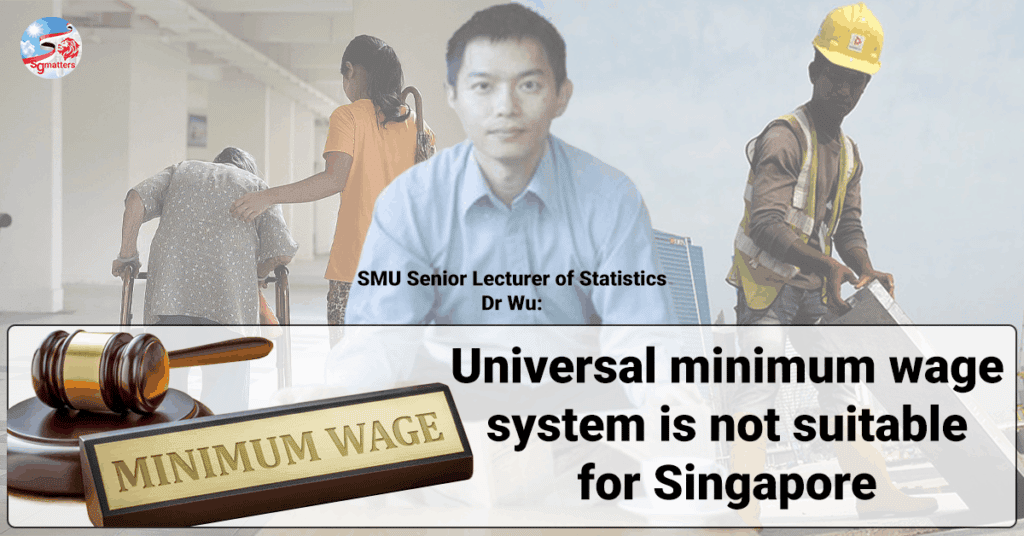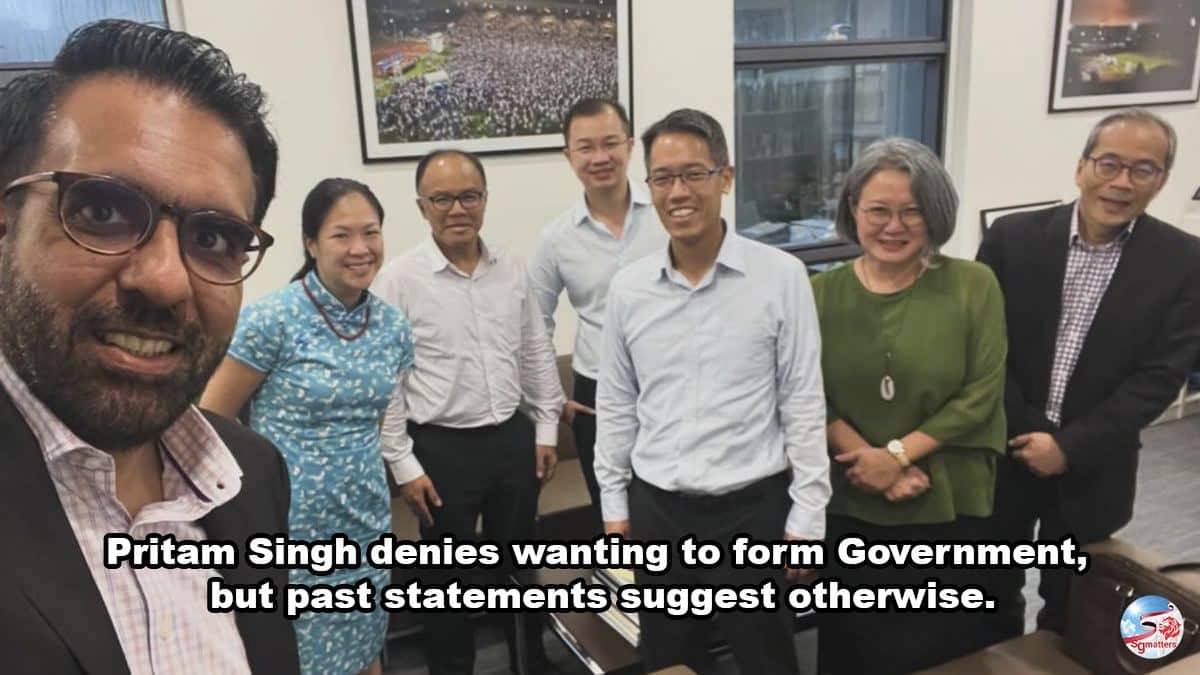In a forum letter published by Lianhe Zaobao, Dr Wu Zhengxiao, a Senior Lecturer in Singapore Management University (SMU) explained why universal minimum wage system is not suitable for Singapore.
And here the translation of the forum letter:
I recently read some articles about the minimum wage system.
Many articles mentioned that the universal minimum wage system is not suitable for Singapore.
One reason is that Singapore’s economy is highly dependent on foreign workers. About 40% of the Singapore workforce is foreign workers. And the majority of the low-paid foreign workers are domestic helpers and in the construction workers.
Primary beneficiaries of universal minimum wage are not Singaporeans
If a universal minimum wage is established, the primary beneficiaries are not Singaporeans but those low-paid workers in Singapore. That explained the political resistance in implementing universal minimum wage in Singapore.
Thinking back on the discussion with Workers’ Party MPs, it seems that there was no mention of minimum wage being applied to foreign workers.
The Workers’ Party manifesto merely suggested a minimum wage of $ 1,300 a month for Singaporeans with full-time jobs, while the wages of Singaporeans with part-time positions will be proportionately determined.
In the discussion on Minimum Wage, foreign workers seem to have been completely excluded. Will The Workers’ Party also recommend the Minimum Wage to be applied to the foreign workers?
Moral point of view
Morally speaking, Universal Minimum Wage should include all workers regardless of their nationality.
Economic point of view
From an economic point of view, if Minimum Wage is only applicable to Singaporeans, this will push employers to hire cheaper foreign workers without Minimum Wage requirement. This will weaken Singaporean’s competitiveness in the labour market and increase Singaporean’s unemployment rate.
International practice
Based on international practice, it is unheard of for foreign workers to be excluded from Minimum Wage.
Legal point of view
From a legal point of view, Singapore is a member of the International Labour Organization (ILO). The principle of the International Labour Organization is to apply Minimum Wage System across all employees, including foreign workers.
Article 11 of Convention No. 189 of the International Labour conference of 2011 emphasised that members are required to take measures to ensure that domestic workers enjoy minimum wage security where minimum wages exist.
Although The Workers’ Party did not mention foreign workers, morally, economically, internationally and legally, the Universal Minimum Wage System must cover all workers, including foreign workers, especially our domestic helpers.
Will Singaporeans welcome a minimum wage of $1300 for domestic helpers?
The average salary of our domestic helper is about $600 a month. By implementing Minimum Wage, Singaporeans will have to adjust their domestic helper salary from $600 to $1300. Will Singaporeans welcome such policy? I doubt so.
Domestic helpers have become essential to part of our aging population today, taking care of the elderly and children, enabling more well-educated women to join the labour force, increasing the productivity of Singaporeans.
Minimum wage of $1300 wage for domestic helpers?
Implementing Minimum Wage for domestic helper to $1,300 a month will reduce the demand for domestic helpers, forcing more women to stay at home as they are needed to take care of the elderly and children.
Not only will Singaporeans’ productivity fall, but fertility may fall too, as the cost of raising children increases.
Therefore, the minimum wage of $1,300 a month is not only unpopular; it is unreasonable.
Supporters of the universal minimum wage system believe that a major advantage of the universal minimum wage is that it can guarantee the basic needs of employees. If different people in the country have different “living wages”, choose the lowest one.
According to Dr Jamus of the Workers’ Party, Minimum Wage can be implemented once they determined the minimum wage for those belonging to the lowest-paid industry.
Taking domestic helper as an example, is $600 per month a reasonable “living wage”?
There are wealthy Middle Eastern countries, which are highly dependent on foreign workers. They established Minimum Wage on the basis that foreign employees only work for a short period, after which they will return home where the cost of living is lower.
For example, in Qatar, where GDP per capita is similar to Singapore, the minimum wage is 1,000 Qatari riyals per month, which is about S $ 375 per month. In Kuwait, the minimum wage is KWD 60 per month, which is approximately $ 268 per month. Such minimum wages may be a reasonable living wage for foreign workers, but too low for locals, who have a higher cost of living.
One-size-fits all?
In other words, a comprehensive, one-size-fits-all Minimum Wage based on the “living wage” of foreign workers does not guarantee the basic living needs of locals.
In comparison, it is a better option for the Singapore Government to establish targeted policies for different industries wage may be a reasonable living wage for foreign workers. Still, it will be too low as the cost of living is higher for local residents.
Proponents for Universal Minimum Wage may argue that raising the minimum wage for workers will stimulate employers to innovate and increase productivity, thus reducing their needs on manpower.
However, such thought maybe too optimistic.
In the case of implementing minimum wage for domestic helper, the employer may have a stronger willingness to reduce its dependence on the domestic helper, but are they able to? I am afraid that most employers will subsume the additional costs and continue to hire them, or to dismiss them, quit their current job to take care of the elderly and children at home.
For this instance, two jobs are lost in the market, which not only reduces productivity. It is also counterproductive.

Wouldn’t it be simpler without a minimum wage? Can a simple single policy solve the problem? I am more incline to getting a higher pay through progression.
[irp posts=”1367″ name=”PAP MPs quiz Jamus on the universal minimum wage”]
Progressive Wage Model more suitable for Singapore
The Progressive Wage Model framework, which already in place, can help guide employers in a targeted manner, introduce new technologies and train employees to acquire new skills. Remuneration will likely increase with increased productivity.
In my opinion, the Progressive Wage Model is the enhanced version of the Minimum Wage, and it is more suitable for Singapore.
[irp posts=”1704″ name=”Minimum wage is politics. Progress Wage Model is practical solution”]





